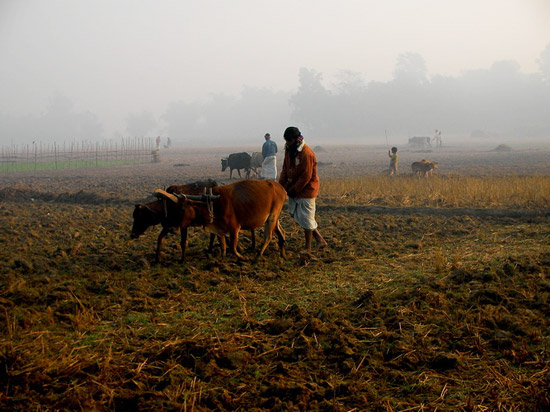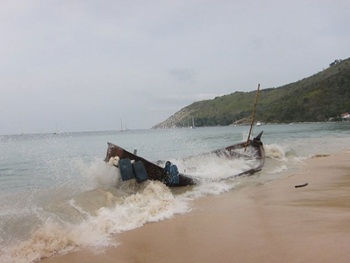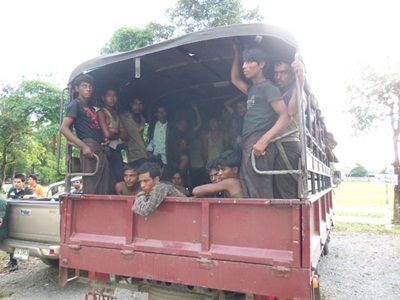
Lands belonging to
Rohingya villagers in Arakan State are routinely confiscated by the
Burmese military
“Seven out of our 32 acres of farmland were seized from me and my family by the personnel of Battalion No. 552.”
“After seizing the land, the military planted rubber saplings on our land without giving any compensation to us, even though there is plenty of wild land suitable for turning into rubber plantations.”
“I have eleven family members, including three sons and six daughters. My eldest son has just completed matriculation from Taung Bazar High School. However, I can’t afford to send my son for higher studies at Akyab (Sittwe) University because of our family’s financial situation.”
Hussain is a teacher at a local Islamic religious school (Madrasa), and he receives only 10,000 Kyat support from the Madrasa per month, which is not enough to sustain his family. The Madrasa is administered by local villagers, and there is little prospect that they will be able to increase the amount of support, he said.
“The authorities impose various kinds of restrictions on the Arakanese Rohingya, including restriction of movement. If anyone wants to go from one place to another, he/she needs to apply for a travel pass from the local Nasaka authority.”
Like Hussain, many Rohingya’s lands have been confiscated and handed over to make homes for Natala settlers, ‘model villagers’ who are encouraged to settle in northern Arakan State from other areas in Burma. The authorities also build Buddhist pagodas on the confiscated lands.
In the winter months, Rohingya farmers traditionally cultivate betel leaves on their lands in Bogri Chang village, but the captain of Military Battalion No. 552 has begun extorting Kyat 40,000 to 50,000 per acre from local farmers, said another villager on condition of anonymity.
If any farmer is unable to pay money to the captain, his betel farm will be destroyed by the army, the villager said.
Some of the betel farm owners who have lost their farmlands include Abu Sayed (50), Mohamed Siddik (53), and Hussain Ahamed (33). Their betel fields were destroyed during the third week of October 2011 because they were unable to pay money to the military officer. They all belong to the said village.
“Now, they are facing many difficulties to support their family members, as they have no alternative earning sources.”
“Besides, the streams or brooks where water comes out from mountain walls are also controlled by Army Battalion No. 552. During winter, some Rohingya farmers want to grow extra paddy, but they have no lands to cultivate because so much land near the mountain areas has been confiscated by the army. The military earns money by leasing these lands back to Rohingya farmers for Kyat 15,000 per acre.
Another Rohingya villager in Bogri Change named Nurul Haque (55) was the owner of seven acres of farmland, but all of his land was confiscated by the military in 2010. Currently, he is landless and very poor. He and his older children struggle to find ways to support the eight-member family, said a local elder who declined to be named.
“Just a few months ago, Nurul Haque’s eldest son went to a nearby mountain to collect firewood, but on his way home he was halted by military personnel who seized all of his firewood. So, his son could not sell it, and therefore had no money to purchase food, so all the family members starved that night.”
“Like Nurul Haque’s family members, many Rohingya people are starving because of the army.”
Rohingya minority people do not have citizenship status in Arakan State. They often lack access to basic public services, including health, sanitation, and education, sources said.
Between 1991 and 1992, over 250,000 Rohingya refugees arrived in neighboring Bangladesh because of religious and political persecutions, and other human rights abuses in their homeland, such as forced labor, restrictions on movement, marriage, and education, as well as land confiscation, arbitrary arrest, and extortion.
“We Rohingya hoped to get some concessions from Burmese authorities after the 2010 elections, including freedom of movement, access to medical facilities, education facilities, and the equal rights enjoyed by other ethnic groups,” a former Rohingya politician said in a recent interview.
The politician said that he is concerned about the future of the Rohingya in Arakan State as many forms of harassment and human rights abuses continue unabated more than one year after President Thein Sein’s nominally civilian-led government took office.
 “I lived with my parents and wife in a small
shed at Nayapara, an official Refugee Camp under the supervision of the
UNHCR and the Bangladesh authorities,” he said.
“I lived with my parents and wife in a small
shed at Nayapara, an official Refugee Camp under the supervision of the
UNHCR and the Bangladesh authorities,” he said. Unfortunately, they ran out of food after
being buffeted by strong winds off the coast of Thailand and floated
around for an extra 2 days.
Unfortunately, they ran out of food after
being buffeted by strong winds off the coast of Thailand and floated
around for an extra 2 days.